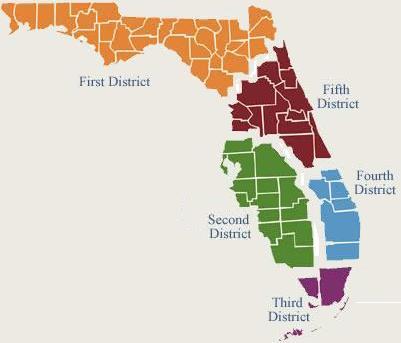The First District Court of Appeal, as of today, no longer wants attorneys to file papers with its clerk’s office. Last month, the Court stopped requiring attorneys to file both a paper copy and an electronic copy of a paper. Today, the switch over is complete and attorneys with eDCA logins are required to file all papers — briefs, motions, docketing statements — using the eDCA Portal.
Documents must be filed in .pdf form. ¶ 4 Gone is the fine art of the cover letter to the clerk — the Court specifically asks that parties refrain from sending such transmittal letters. ¶ 8 One need not have an original signature on an e-filed brief, but signing up for eDCA filing access means that you are agreeing that any document uploaded on your password carries the same force as one bearing your signature. ¶ 12.
Don’t expect any paper back from the First DCA, either. In the near future, all mandates, opinions, and orders will be e-mailed to the parties. ¶ 10
E-filing briefs? No problem. But give yourself plenty of time to ensure that your appendix is in uploadable form. The other down side — or plus side, depending on how desperate you are on a given day — is that with the advent of e-filing, your brief is deemed filed at any time up until 11:59 pm on a given day.
Finally, don’t forget to serve opposing counsel and prepare an appropriate certificate of service. ¶ 14 The eDCA portal is slick, but it isn’t quite slick enough to take care of sending out service copies for you.
 Today’s the day that electronic filing by the clerks of court and court reporters becomes mandatory. As previously discussed, this means that the clerks of court and agencies within the First DCA — which encompases the 1st, 2nd, 3rd, 8th and 14th Circuits — now must transmit their certified copies of the Notice of Appeal and more the record electronically. The Notice of Appeal procedure isn’t too onerous, but I don’t look forward to the delay I envision as the trial court clerks get used to preparing an electronic record on appeal. Great job to the panhandle for leading the way into the 21st century for the Florida intermediate appellate courts.
Today’s the day that electronic filing by the clerks of court and court reporters becomes mandatory. As previously discussed, this means that the clerks of court and agencies within the First DCA — which encompases the 1st, 2nd, 3rd, 8th and 14th Circuits — now must transmit their certified copies of the Notice of Appeal and more the record electronically. The Notice of Appeal procedure isn’t too onerous, but I don’t look forward to the delay I envision as the trial court clerks get used to preparing an electronic record on appeal. Great job to the panhandle for leading the way into the 21st century for the Florida intermediate appellate courts.